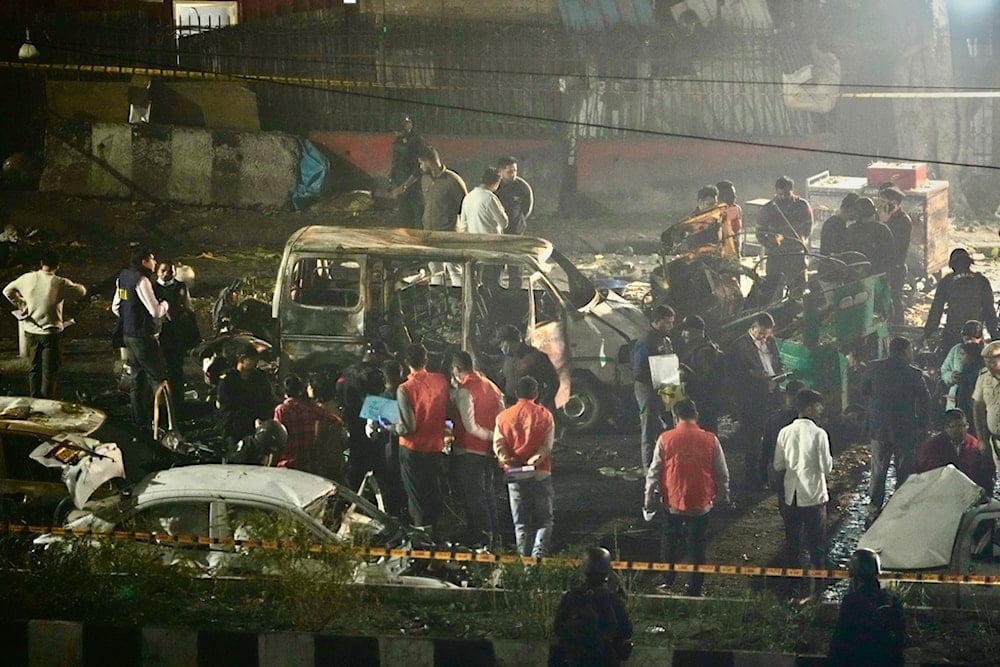New Delhi blast confirmed suicide attack by national investigators
India's National Investigation Agency confirms the Delhi suicide blast near Red Fort was carried out by a Kashmiri bomber, the first such attack in the capital since 2019.
-

Security officers inspect the scene of a car explosion, reportedly killing eight people, near the historic Red Fort in New Delhi, India, November 10, 2025. (AP Photo/Manish Swarup)
India’s National Investigation Agency (NIA) has confirmed that the car explosion near the Red Fort metro station in Delhi on November 10 was a suicide bombing. The blast killed at least 13 people and marked the first such attack in the capital, and only the second major car-borne suicide bombing in India since the 2019 Pulwama attack in southern Kashmir.
According to the NIA, the suicide bomber drove an explosive-laden vehicle into a high-security area near the historic site, triggering a blast that resulted in mass casualties and widespread panic in the city.
The NIA arrested a Kashmiri resident, Amir Rashid Ali, in connection with the attack. The vehicle used in the bombing was registered under Ali’s name. Authorities allege that he conspired with the attacker, identified as Umar Un Nabi, to carry out the suicide mission.
“Amir Rashid Ali, a resident of Samboora, Pampore in Jammu and Kashmir, had conspired with the alleged suicide bomber to unleash the terror attack,” the NIA said in its official statement. The agency also confirmed it has seized another vehicle belonging to Umar as part of its ongoing investigation.
Read more: India and Pakistan troops clash in disputed Kashmir
Link to Kashmir unrest and ongoing terror investigations
Just days after the Delhi suicide blast, a powerful explosion at a police station in Nowgam, Kashmir, killed nine people and injured more than 30. The blast occurred during forensic testing of materials recovered in a case linked to the Red Fort bombing.
Authorities are now probing whether the Nowgam explosion was triggered accidentally during examination or deliberately planted to obstruct the investigation.
The NIA continues to explore potential links between the Delhi blast and broader militant activity in Jammu and Kashmir, particularly in light of the region’s history of unrest and recent violence.
Read more: Kashmir police station blast kills nine, injures 29
Earlier in April, a separate terror attack in Jammu and Kashmir killed 26 people and sparked a brief military exchange between India and Pakistan. Although New Delhi has not publicly blamed Islamabad for the recent Delhi attack, the incident has contributed to rising tensions in the region.
As investigators analyze evidence and pursue additional suspects, the Delhi suicide blast has renewed concerns over urban security and highlighted ongoing threats linked to Kashmir-based militants.

 3 Min Read
3 Min Read










